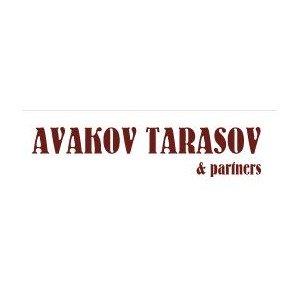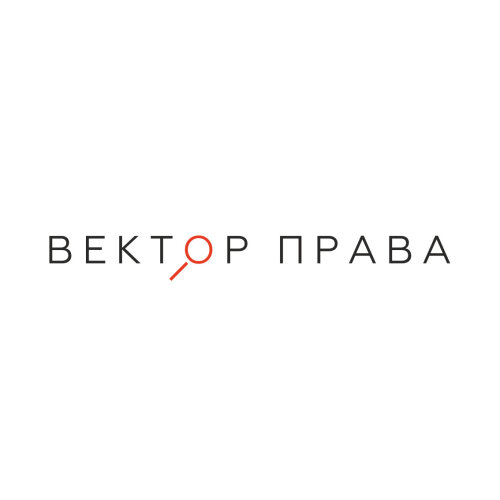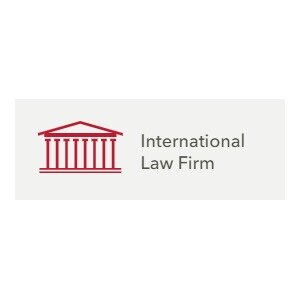Best Antitrust Litigation Lawyers in Moscow
Share your needs with us, get contacted by law firms.
Free. Takes 2 min.
List of the best lawyers in Moscow, Russia
About Antitrust Litigation Law in Moscow, Russia
Antitrust litigation in Moscow refers to legal proceedings aimed at resolving disputes related to anti-competitive business practices within the market. Russia’s antitrust laws, also known as competition laws, are designed to protect fair competition, prevent monopolistic activities, and stop unfair business practices. These laws are enforced primarily by the Federal Antimonopoly Service (FAS) of Russia. In Moscow, as the country’s economic and business hub, antitrust cases often involve large corporations, mergers and acquisitions, and cartel allegations. Legal action can include challenging unfair agreements, abuse of a dominant position, and unlawful influence on pricing or market entry.
Why You May Need a Lawyer
Antitrust litigation can be complex and involve significant financial stakes, technical evidence, and in-depth economic analysis. You may need a lawyer if you are facing investigations from authorities such as the FAS, involved in disputes with competitors or suppliers, or if your company has been accused of violating competition laws. Other reasons to seek legal help include mergers and acquisitions subject to antitrust review, responding to allegations of cartel participation, and requiring compliance advice to prevent violations. A specialized lawyer can guide you through the investigation process, represent you in court, negotiate with regulators, and help develop internal compliance programs.
Local Laws Overview
The primary legal framework for antitrust litigation in Moscow is outlined in the Federal Law on Protection of Competition (No. 135-FZ) as well as related regulations and orders of the FAS. Key aspects include:
- Prohibition of agreements that prevent, restrict, or eliminate competition (for example, cartels, bid rigging, or price fixing).
- Restrictions on abuse of a dominant market position, such as setting unfair prices or creating barriers for market entry.
- Clearance requirements for certain mergers and acquisitions that may affect competition.
- Special rules addressing unfair competition and misleading advertising.
- Investigation processes managed by the FAS, which can impose substantial fines or order the restoration of competition.
- Court proceedings for appealing administrative decisions or seeking damages due to anti-competitive conduct.
- Criminal liability for certain serious violations, such as cartel activities.
Frequently Asked Questions
What is considered an antitrust violation in Moscow, Russia?
An antitrust violation includes actions like cartel agreements, price fixing, market sharing, abusing a dominant position, restrictive practices in contracts, and anti-competitive mergers or acquisitions.
Who enforces antitrust laws in Moscow?
The Federal Antimonopoly Service (FAS) is the main governmental body responsible for investigating and enforcing antitrust laws in Moscow and throughout Russia.
Can individuals file antitrust claims, or is it only for companies?
Both individuals and companies can file complaints with the FAS or initiate a lawsuit if they have suffered damages from anti-competitive practices.
What are the possible penalties for violating antitrust laws?
Penalties include substantial fines, orders to cease certain activities, mandatory divestitures, and in severe cases, criminal charges for company executives or employees involved.
What steps should I take if my company is under antitrust investigation?
Seek legal advice immediately, cooperate with investigators, review internal communications, and avoid destroying documents related to the investigation.
Are foreign companies doing business in Moscow subject to Russian antitrust laws?
Yes, any company operating in Russia or whose actions impact Russian markets is subject to Russian antitrust regulation, regardless of origin.
How long does antitrust litigation usually take in Moscow?
The duration can vary widely depending on case complexity. Administrative investigations may last several months, while court proceedings can extend over years.
What types of mergers need approval from the FAS?
Mergers and acquisitions that meet certain turnover or asset thresholds require notification and approval from the FAS to assess their impact on competition.
Can anti-competitive behavior also lead to private lawsuits for damages?
Yes, victims of anti-competitive conduct can file civil lawsuits seeking compensation for damages caused by such behavior.
Is there a statute of limitations for antitrust claims?
Yes, Russian law sets specific periods within which claims must be brought, usually within three years from when the claimant learned of the violation.
Additional Resources
If you need more information or support, the following resources can be helpful:
- Federal Antimonopoly Service (FAS) - Main authority for enforcement, guidance, and information on competition policy.
- Arbitration Courts of Moscow - Courts that handle civil disputes, including antitrust litigation.
- Chamber of Commerce and Industry of the Russian Federation - Offers resources and legal assistance to businesses.
- Russian Union of Industrialists and Entrepreneurs (RSPP) - Provides information and advocacy on competition and industry standards.
- Legal aid centers and professional bar associations in Moscow - Can help connect you with accredited lawyers or provide legal consultations.
Next Steps
If you believe you are involved in or affected by an antitrust issue in Moscow, consider taking the following steps:
- Gather all relevant documents, contracts, and communications relating to your case.
- Consult with a lawyer who specializes in antitrust and competition law in Russia to evaluate your legal position and possible risks.
- Contact the Federal Antimonopoly Service if you suspect anti-competitive practices and are considering making a formal complaint.
- Review your company’s internal policies and compliance programs to ensure adherence to antitrust regulations.
- If litigation is necessary, your lawyer will help you prepare a legal strategy and represent you in negotiations, investigations, or court proceedings as required.
Timely legal advice is essential in antitrust matters to avoid severe penalties and protect your business interests.
Lawzana helps you find the best lawyers and law firms in Moscow through a curated and pre-screened list of qualified legal professionals. Our platform offers rankings and detailed profiles of attorneys and law firms, allowing you to compare based on practice areas, including Antitrust Litigation, experience, and client feedback.
Each profile includes a description of the firm's areas of practice, client reviews, team members and partners, year of establishment, spoken languages, office locations, contact information, social media presence, and any published articles or resources. Most firms on our platform speak English and are experienced in both local and international legal matters.
Get a quote from top-rated law firms in Moscow, Russia — quickly, securely, and without unnecessary hassle.
Disclaimer:
The information provided on this page is for general informational purposes only and does not constitute legal advice. While we strive to ensure the accuracy and relevance of the content, legal information may change over time, and interpretations of the law can vary. You should always consult with a qualified legal professional for advice specific to your situation.
We disclaim all liability for actions taken or not taken based on the content of this page. If you believe any information is incorrect or outdated, please contact us, and we will review and update it where appropriate.















